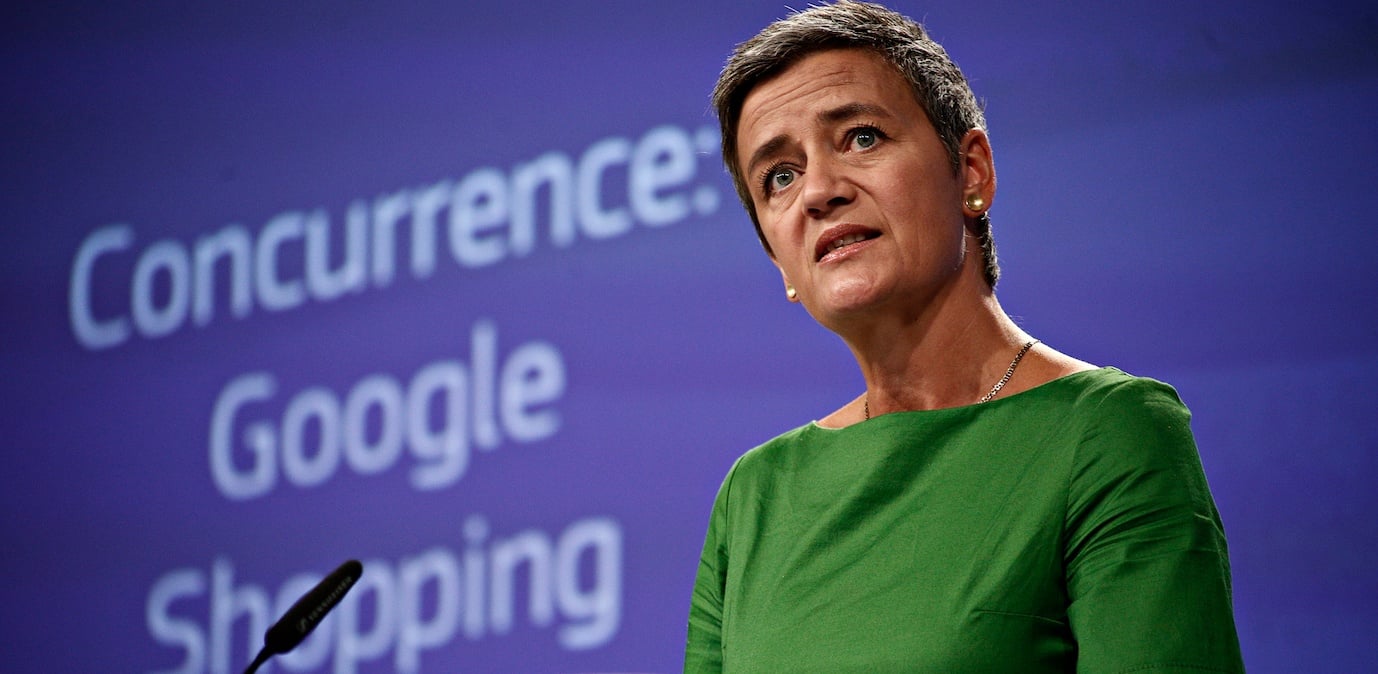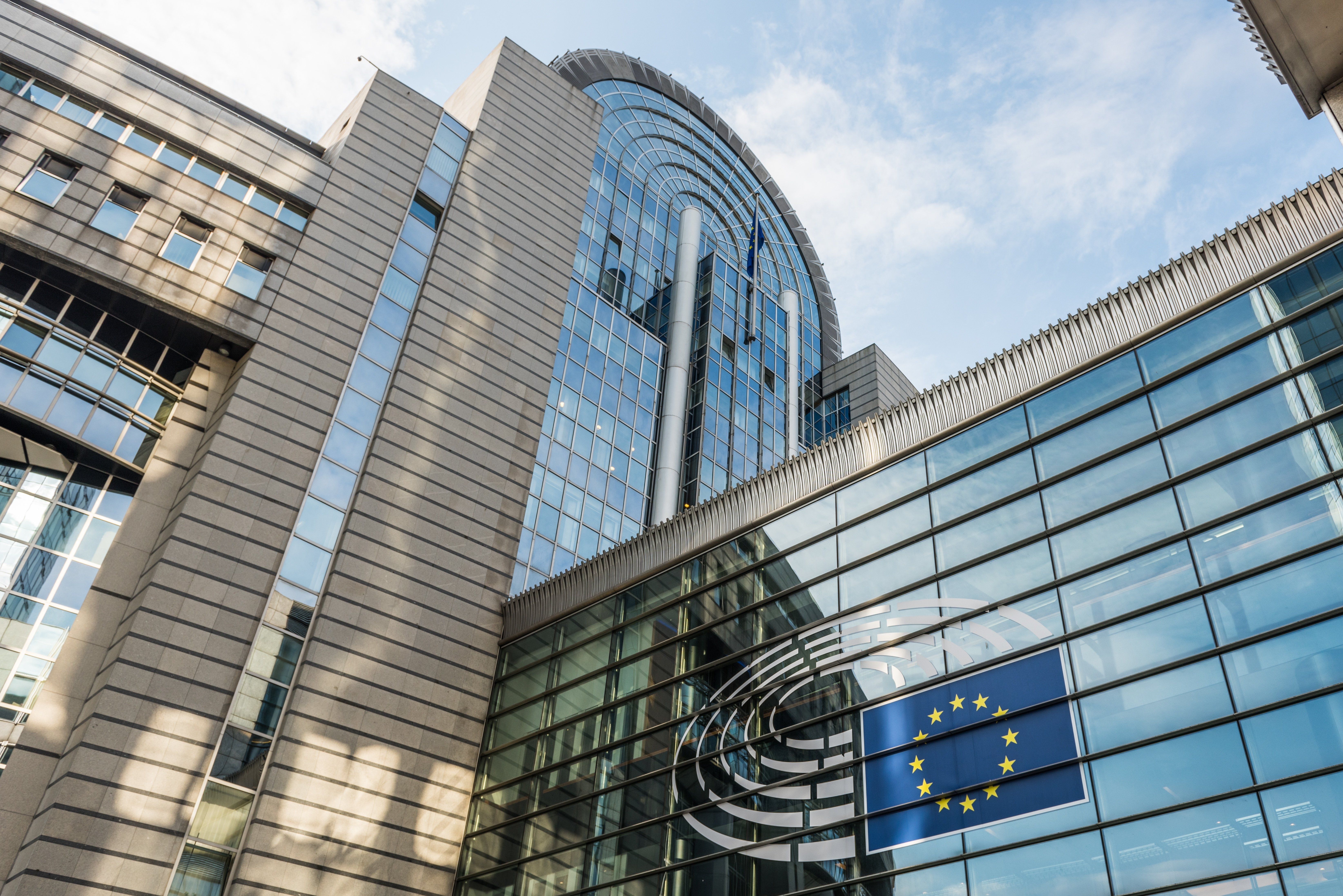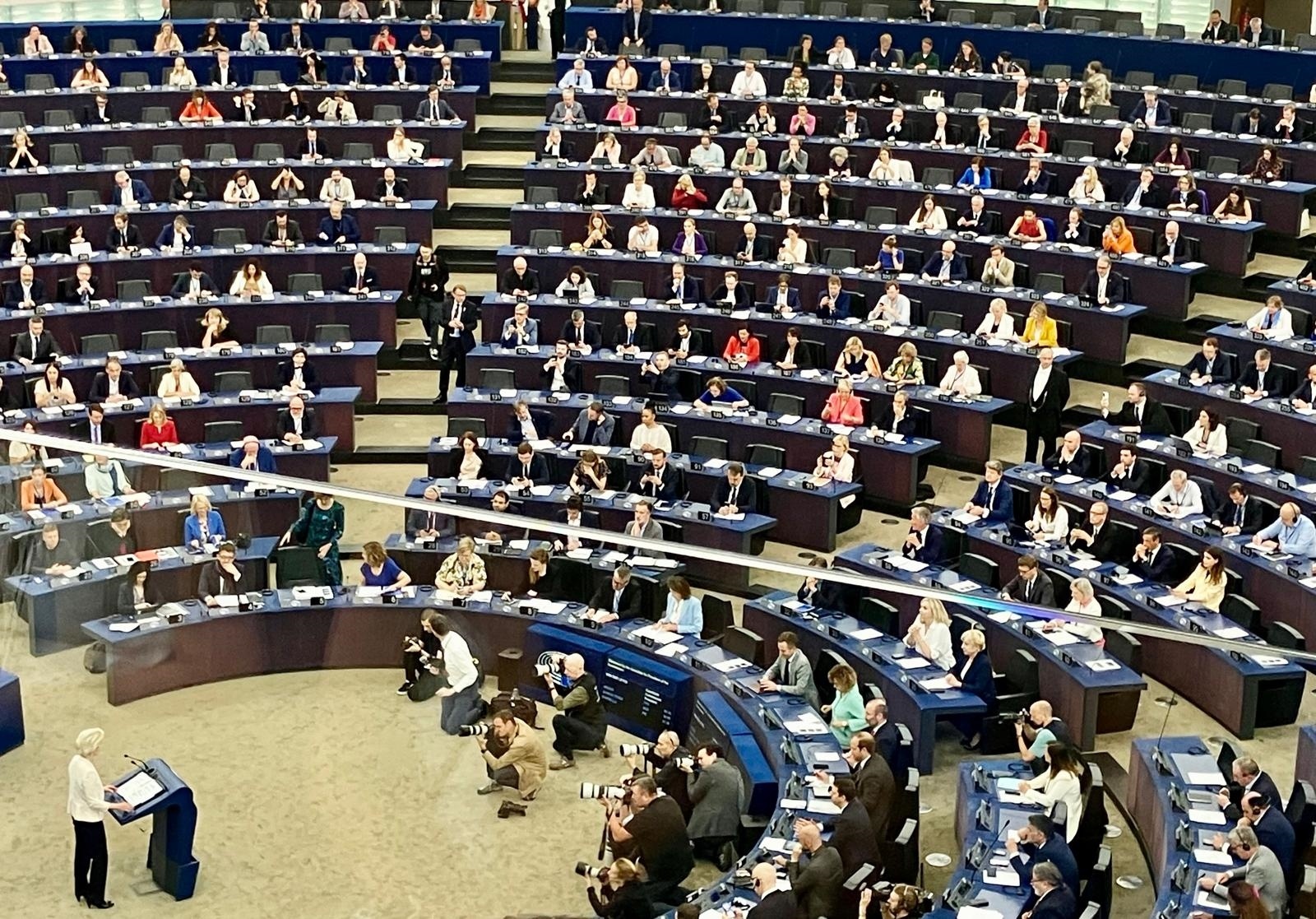EU Digital Single Market Strategy – Has Brussels gone from friend to foe of the tech sector?
by Shomik Panda on 22 May 2018
As Mark Zuckerberg takes his seat to answer questions for the first time in the European Parliament, it is a good time to take stock of the EU's Digital Single Market Strategy, assess its successes, and consider the new regulations and policy proposals coming from the European Commission.
Promising beginningsIn 2015 the European Commission launched 29 legislative initiatives to make a fully functioning Digital Single Market (DSM) a reality. Europeans were told that a host of EU digital single market barriers would be eliminated, which in turn would allow digital companies to provide their products and services seamlessly throughout Europe. EU tech companies would be able to scale more easily, which would provide a significant boost to jobs and growth. Consumers would also see improvements in their rights and protections as online protections would be brought into line with those offline. All this, according to the European Commission, could have the potential to add a massive €415 billion to EU GDP.
It was always clear that the Commission was going to have to manage a delicate balance between boosting consumer digital protection and removing digital single market barriers. It seems though that the political direction in Brussels has evolved and recent releases are more focused on new initiatives in the name of protection than opening up markets.
There was some early progress
Even if the political weather is getting heavier, three years on from the launch of the DSM, the Commission can already claim some high-profile successes:
- A ban on mobile roaming charges yielded a four-fold increase in data use when travelling to other EU Member States in the year to summer 2017.
- A ban on geo-blocking restrictions which, albeit with some sectoral carve-outs, have ended restrictions that prevent customers from accessing and purchasing products or services from a website based in another Member State.
- The introduction of portability rights, which mean EU consumers can now watch purchased online audio-visual content anywhere in the EU.
- The General Data Protection Regulation, which leads the world in its reach and ambition, has come to be recognised as far-sighted and timely, rather than the overly prescriptive and unnecessary legislation some in the tech industry felt it to be. The GDPR is not strictly part of the DSM strategy but its implementation has been recognised as a flagship digital initiative of the EU institutions.
And there is no let-up in the pace. The European institutions are ploughing ahead with further initiatives to complete the DSM strategy. Some of these should certainly boost Europe’s growth and competitiveness, such as the soon to be agreed Electronic Communications Code. The Code will ensure that all EU Member States assign the frequencies necessary for the introduction 5G networks by 2020, creating a stable regulatory framework for long term network investment.
What has changed?
On the surface, little, but spurred on by a shift in public opinion against big tech firms, the European Commission has found purpose and plaudits for its willingness to get ahead of the new digital order. It is the EU that has led the world on personal data protection, on moves to ensure that multinationals pay their taxes fairly, and it is the EU that is taking large technology platforms to task for anti-competitive practices. Silicon Valley bosses have come to fear EU Competition Commissioner Margrethe Vestager more than their own domestic politicians and regulators, and rightly so. Suddenly, and unusually, the European Institutions look like they are moving in step with public opinion while others lag behind.
What is the impact of this new swagger in Brussels on how the Digital Single Market may eventually turn out? A closer look at the detail of some of the recent Commission initiatives show that there is cause for concern that a truly competitive EU digital single market will emerge. While some barriers are being eliminated, a different set may be being erected, with the potential for harmful consequences for growth.
Taxing growth rather than profits
The European Council is working on proposals for a digital services tax on revenues resulting from the supply of certain digital services in the EU. A 3% revenue tax will apply to companies with total annual worldwide revenues of €750 million and EU revenues of €50 million. While this is clearly aimed at ‘big tech’ companies, it will set Europe apart from the US and other countries, where similar measures have been dismissed.
A tax on revenue rather than profit will hurt those that are still growing relative to those that are already significantly profitable. There may be unintended consequences for corporate growth and the development of competition. EU companies may consider scaling outside of the EU rather than within, in order to avoid the tax. Non-EU companies, on the other hand, may equally try to avoid the tax by choosing to scale across the rest of the world before considering the EU as an attractive market.
A new regulator for online platforms?
Earlier this year the European Commission introduced a draft Regulation to promote fairness and transparency for business users of online intermediation services. Under the Commission’s proposals, which are still subject to negotiations with other EU institutions, online platforms would be obliged to:
- Give 15 days’ notice to business users ahead of any changes to terms and conditions.
- Clearly state why certain services on their websites may be being given differentiated treatment.
- Provide details on the main parameters which determine ranking results for listings.
- Explain if ‘most favoured nation’ clauses, which prevent undercutting of prices on different platforms, are in place and why.
- Bear the majority of costs when they enter into a mediation process with business users.
While all of these will add compliance costs and legal risks for platform, it is perhaps the creation of a new ‘Platforms Observatory’ that is of most significance, as it could be seen as a shadow regulator waiting in the wings. The Observatory would be tasked with monitoring the implementation of the Regulation and suggesting if further action is necessary later on. It has a time-limited but broad investigatory remit, and some would argue that rarely has an equivalent new body recommended that it should have less powers or that there is no further role for regulation.
Taken together, the growing compliance burden for online platforms and a potential embryonic regulator open the door to future platforms regulation that could go well beyond simple transparency requirements.
Stronger consumer protections backed up by fines
In parallel to the proposals on the relationship between platforms and the businesses that sell through them, the Commission has launched a package of new consumer rights, which would create new requirements for online marketplaces to provide a range of communication, including:
- the main parameters determining ranking of the different offers;
- whether the consumer is buying from a trader or an individual;
- whether relevant consumer protection legislation applies and who is responsible for ensuring consumer rights related to the contract;
- whether search results contain 'paid placements' or 'paid inclusion'.
Significantly, national authorities will have the power to impose a fine of at least up to 4% of a trader's turnover for infringements. This would be in addition to a new EU consumer redress system, which would allow collective redress for consumers in “mass harm” situations rather than requiring every individual consumer to take action.
Much needs to be further defined to prevent undue confusion. There are calls in the consumer package, for instance, for platforms to provide certain pieces of mandatory pre-contractual information prior to online bookings, but many of these details are currently withheld by online platforms to prevent free-riding, where consumers use an online intermediary for their search but then go straight to the service provider by passing the intermediary. Fine details need to be thought through to ensure that such unintended consequences do not end up hindering consumer choice and hurting competition.
Tackling illegal content and the risk of over-censorship
The Commission has set out voluntary recommendations for online platforms to deal with illegal content that has been uploaded to websites. The thrust of the recommendation is that online platforms need to have documented people and processes in place to identify illegal content quickly, take it down expeditiously, and ensure that it stays down. A distinction has been made between particularly harmful illegal content such as terrorist material, which requires expeditious action, and other types of illegal content.
The recommendations are expected to be followed up with legislative actions later this year. While dangerous content must be dealt with swiftly, there is a very real possibility that this action will lead to a situation where online intermediaries of all sizes will be required to effectively police what is happening on their sites. This sits uncomfortably with existing EU law which, in most cases, exempts online intermediaries from being liable for user behaviour on their sites and which does not mandate the active monitoring of user behaviour.
Some types of illegal content are incredibly hard to substantiate and even the largest of online platforms will struggle to resource this activity effectively and within tight timescales. Unless designed extremely carefully, such an undertaking will require massive human and machine resources, which will be an impediment to the growth of newer platforms that are not yet profitable. There are also significant risks of over-reaction and censorship of legal material due to political or media pressure.
Preserving data for law enforcement
Finally in this recent flurry of proposals, the Commission has proposed an e-evidence package will introduce new rules to help EU Member State authorities secure and obtain electronic evidence stored by service providers, irrespective of where the evidence is stored. A new ‘European Production Order’ will allow a judicial authority in one Member State to request access to electronic evidence (such as emails, text or messages in apps) directly from a service provider's legal representative in another Member State, which will be obliged to respond within 10 days, and within 6 hours in cases of emergency. A separate ‘European Preservation Order’ would also require electronic evidence to be preserved for a specific period.
Such data requests will only be issued when serious crimes are under investigation, and all firms operating within the EU will be forced appoint a legal representative who will act as a point of contact for such instances.
Firms will need to have processes and individuals ready to comply with such requests. While no-one would argue with requests for serious crimes, there is a risk that such powers could in the future be extended to lesser crimes where authorities lack sufficient evidence to prosecute offenders and where platforms hold information which would corroborate or refute whether one has broken the law. Getting into a situation where platforms are routinely sharing sensitive user information for this purpose would potentially seriously undermine the trust between platforms and users, while also introducing a situation where platforms are effectively policing certain laws rather than the authorities themselves.
Stimulating or undermining growth?
The above are a few examples of recent initiatives where the Commission has introduced ideas that could substantially undermine the growth objectives the Digital Single Market sought to create.
The DSM is an opportunity to upgrade the EU digital regulatory environment. It was meant to have a dual objective of improving the digital experience for consumers, whilst also unleashing the full potential of a barrier-free digital single market, so that Europe can now lead where it has previously trailed.
While the Commission can certainly claim some early DSM successes, recently, buoyed by a shift in public opinion in the wake of various scandals related to large technology platforms, it has started to focus on the potential regulation of platforms and consumer protection elements rather than ensuring that a truly EU digital single market, free of barriers to trade and consumption, can emerge. There is still time to ensure that the right balance is maintained.
Keeping up with and influencing developments
With such a wide range of regulatory proposals on the table, it will be important for the tech industry to maintain pressure that ensures that the correct balance is struck.
If you have any questions on the content of this article or would like to talk about how to ensure your voice is heard in Brussels, please get in touch.
Photo: Alexandros Michailidis / Shutterstock.com
Topics: European Politics, Google, Amazon, Facebook, Apple, Platforms, Competition policy, Antitrust, Economic policy, Big Tech, Shomik Panda








Comments